Methodology
The survey was designed by PIPSC analysts and was delivered using the Survey Monkey platform.
Results are presented without any weighting. There is no margin of error listed because the survey was conducted online and participants were self-selected.
The results highlighted in this summary come from 1168 scientists who identified themselves as either, working directly on climate change related issues or, having to consider climate change as a variable while performing their work.
Results that include all 1837 survey respondents are available in Appendix A.
Demographics
Demographic distribution of survey respondents compared to the total population.
| Age Group | Total PIPSC Population (SP & RE Groups) | Survey Respondents |
| <30 | 7% | 8% |
| 30-39 |
25% |
24% |
| 40-49 | 33% | 33% |
| 50-59 | 26% | 25% |
| 60+ | 9% | 10% |
Demographic distribution of survey respondents compared to the total population.
| Gender | Total PIPSC Population (SP & RE Groups) | Survey Respondents |
| Male | 53% | 56% |
| Female | 47% | 44% |
Demographic distribution of survey respondents compared to the total population.
| Region | Total PIPSC Population (SP & RE Groups) | Survey Respondents |
| British Columbia | 9% | 11% |
| Prairies | 11% | 12% |
| National Capital Region (NCR) | 47% | 41% |
| Ontario (excl. NCR) | 10% | 11% |
| Quebec (excl. NCR) | 12% | 14% |
| Atlantic | 10% | 11% |
Demographic distribution of survey respondents compared to the total population.
| Classification | Total PIPSC Population (SP & RE Groups) | Survey Respondents |
| Biologist | 24% | 23% |
| Chemist | 5% | 4% |
| Meteorologist | 5% | 6% |
| Physical Scientist | 27% | 31% |
| Research Scientist | 15% | 16% |
| Scientific Regulation | 10% | 7% |
| Other | 14% | 13% |
Demographic distribution of survey respondents compared to the total population.
| Department | Total PIPSC Population (SP & RE Groups) | Survey Respondents |
| Agriculture & Agri-food Canada | 7% | 7% |
| Environment and Climate Change Canada | 21% | 26% |
| Fisheries and Oceans Canada | 13% | 14% |
| Health Canada | 25% | 20% |
| Natural Resources Canada | 10% | 10% |
| Other | 24% | 23% |
Results
Climate change is a crisis that requires immediate action
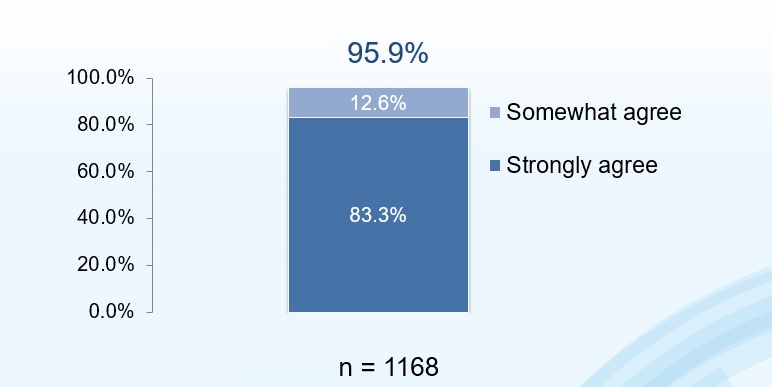
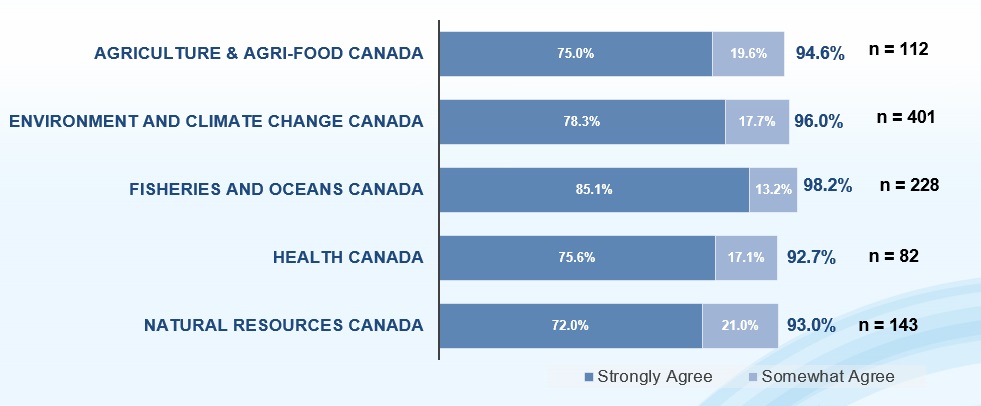
An effective climate change plan requires more mitigation strategies and planning than currently exist in Canada.
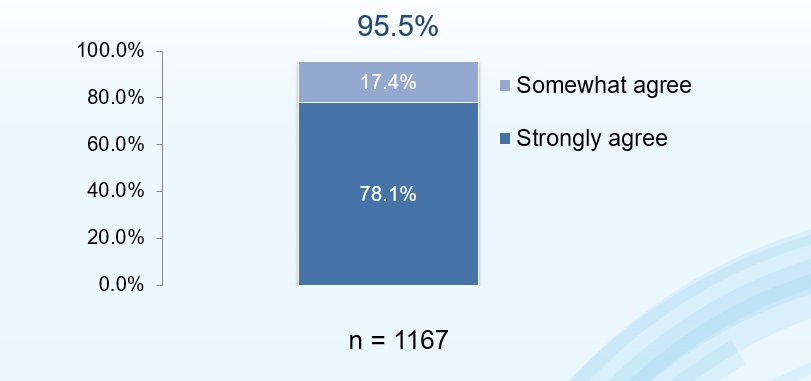
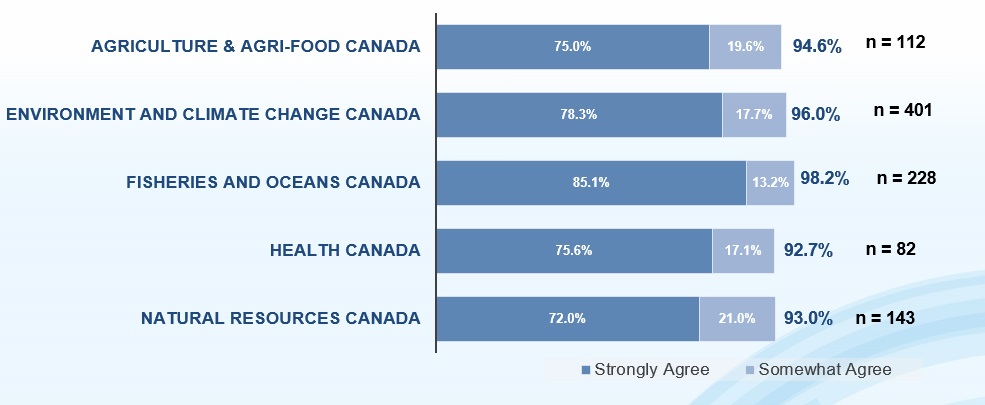
The Government of Canada is doing enough to fight climate change.
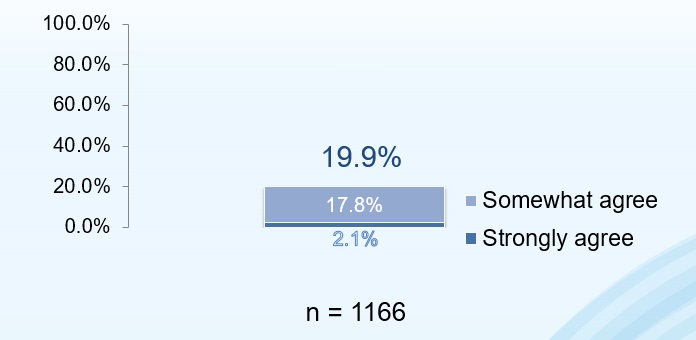
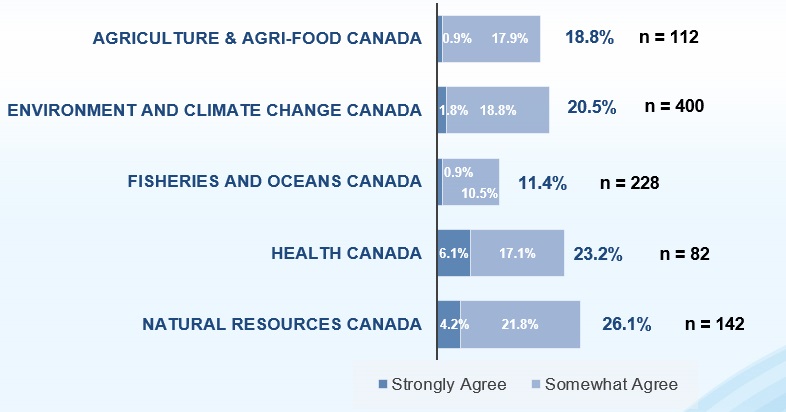
The Government of Canada is doing enough to mitigate the effects of climate change.
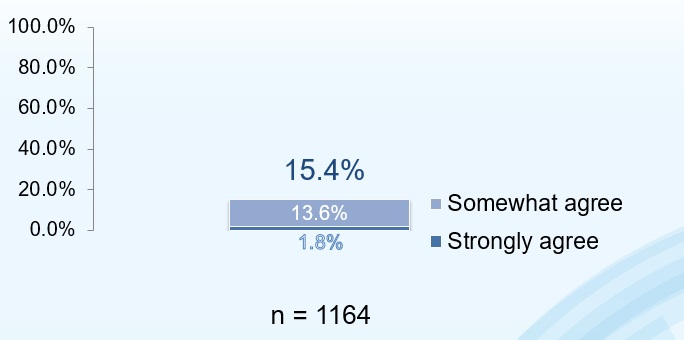
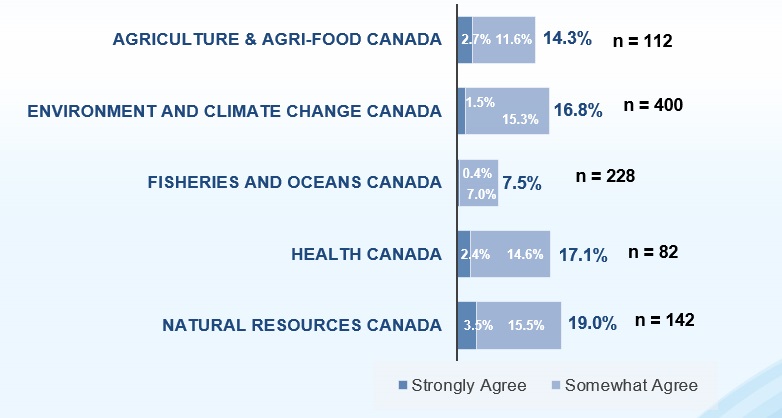
Results Summary

Appendix A - Results Including All Scientists
|
|
Strongly Agree |
Somewhat Agree |
Somewhat Disagree |
Strongly Disagree |
Don't Know |
|
|
1. Climate change is a crisis that requires immediate action |
80.4% |
13.3% |
2.4% |
2.8% |
1.1% |
n = 1835 |
|
2. An effective climate change plan requires more mitigation strategies and planning than currently exist in Canada |
75.5% |
18.0% |
2.3% |
2.1% |
2.1% |
n = 1832 |
|
3. The Government of Canada is doing enough to fight climate change |
3.6% |
17.3% |
33.5% |
41.9% |
3.7% |
n = 1831 |
|
4. The Government of Canada is doing enough to mitigate the effects of climate change |
2.6% |
14.0% |
36.5% |
41.7% |
5.2% |
n =1829 |
Results in Appendix A were not used in the final report. This table includes results from all scientists who completed the questionnaire, regardless of whether or not their work is related to climate change.


